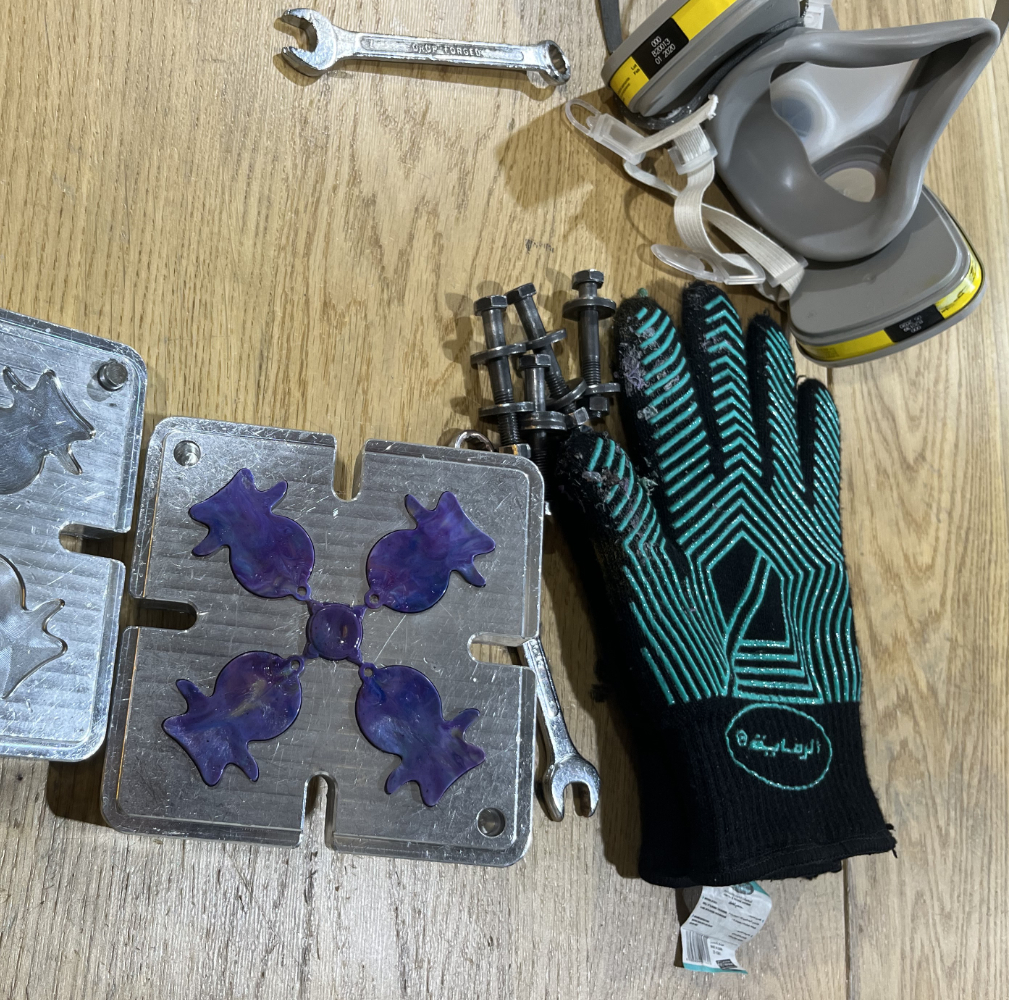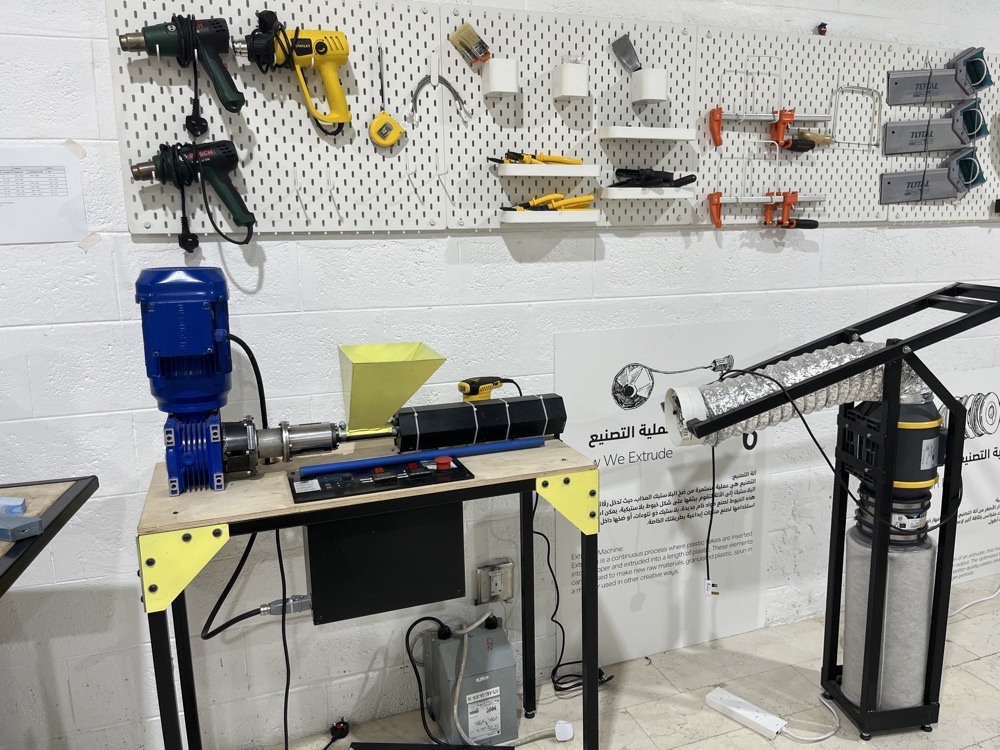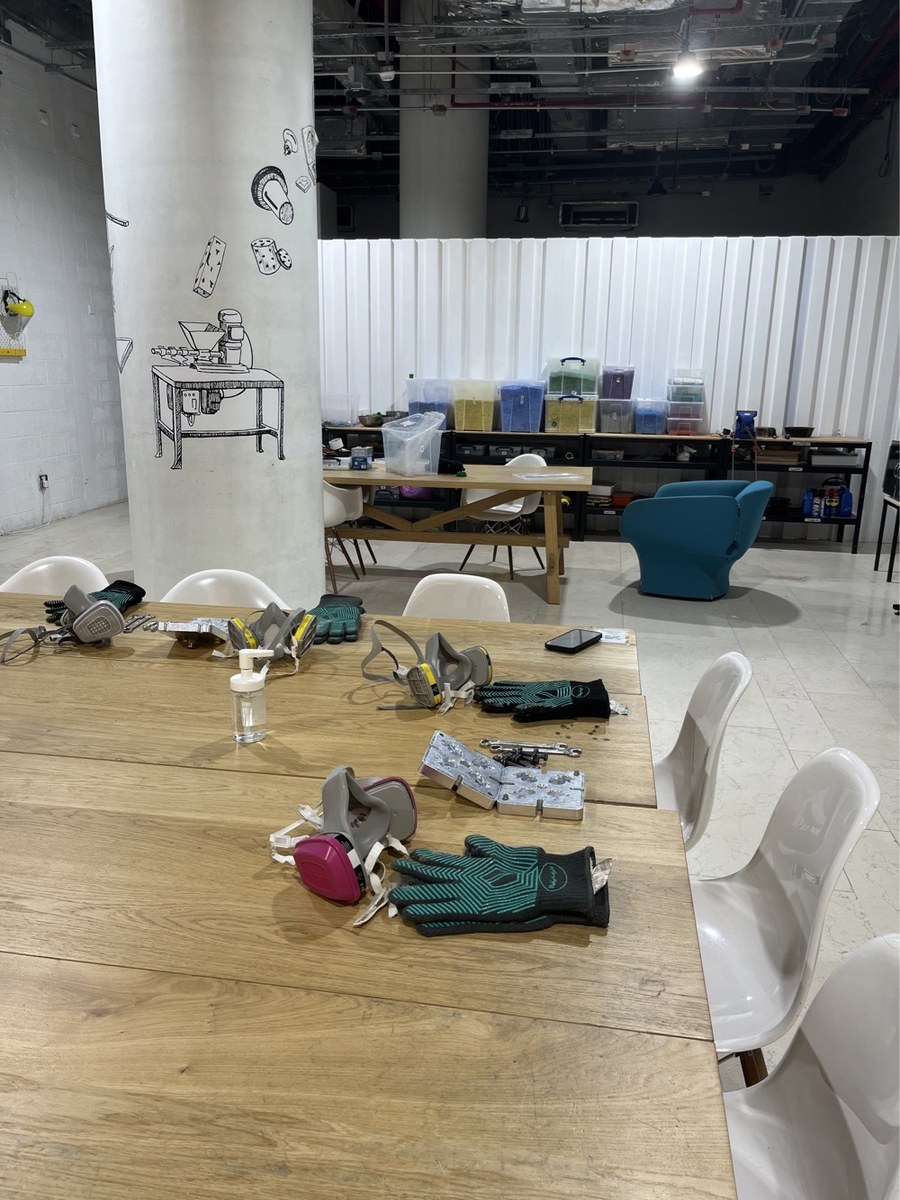DHAHRAN: In the plaza at the King Abdulaziz Center for World Culture, or Ithra, workshops have been held over the past nine months to show environmentally aware participants, including children, how to transform plastic bottle tops into reusable items.
For this, Ithra has partnered with Precious Plastic, a decade-old, worldwide initiative that has been finding innovative ways to get communities in more than 300 locations, in 107 countries, to combat plastic waste.

The Saudi Arabia iteration of Precious Plastic, which was founded in 2013 in the Netherlands, is in the Ithra building in Dhahran. On the opposite coast, there is a space dedicated to this at the King Abdullah University of Science and Technology, or KAUST.
The Netherlands project has been experimenting with producing small objects including combs and earrings.
As a part of this initiative, Ithra’s representatives have been converting plastic tops into various items, including chairs and bowls. The workshops have had participants produce smaller items such the Ithra logo and palm trees.
“The public awareness of plastic pollution has created many initiatives to bring alternative solutions, and recycling plastic is one of those options. Ithra is one of many communities to have joined Precious Plastic,” said Ithra in a statement.

“Precious Plastic is an initiative that combines people, machines, platforms and knowledge to create an alternative global recycling system. Join us at our re-plastic workspace to learn how to use the machines and processes to take waste plastic, process it and create new products,” Ithra added.
Sakinah Al-Nasser, one of the workshop leads, gave Arab News the lowdown. She explained the four steps undertaken at workshops. “First, we would take a small handful of the plastic — conveniently collected by Ithra (there are recycle bins throughout the Ithra building).
“Next, we would select the mold of our choice (there are a few options to choose from, including the Ithra logo), and then we would feed the plastic — in small increments — into the shredding machine.
“Then, finally, we would inject the plastic into the mold with three heaters that go to 280 degrees Celsius. The workshop lead would help each person individually and each item would need to be created one by one. We would head to the communal table and put on our safety gloves and glasses to remove the mold. Each glove and reusable mask, required for safety reasons, are freshly sanitized before each new user.”
 She said no prior knowledge is required and all materials are provided — and participants get to take their creations home.
She said no prior knowledge is required and all materials are provided — and participants get to take their creations home.
“We all have plastic water bottle caps — it’s something we each have at home in abundance. Why not give it a new life? This initiative at Ithra is a great way to learn about utilizing an everyday object that we usually throw away. These fun workshops are great for the community and a fun way to pass the time. Through a few actions we can make something overlooked into something beautiful and useful,” Al-Nasser told Arab News.
“I come from a creative family and we would turn raw materials around us into art; my father encouraged us to take things and transform them. I always was passionate about sustainability and started making candles at home and would reuse them to make new ones. When I got the opportunity to work at Ithra on this project, it was perfect — and was already in line with how I conducted myself,” she said.

The project — and workshop experience — aligns with the 12th aim on the UN Sustainable Development Goals’ list which is “to ensure sustainable consumption and production patterns.”
According to the 2023 UN Sustainable Development Goals Report, the proliferation of plastic risks our planet’s health.
“Carrying a reusable bag, refusing to use plastic straws, and recycling plastic bottles are good ways to do your part every day,” the UN said in a statement regarding the report.
And, with water consumption from plastic bottles at an all-time high in the Kingdom, there are plenty of caps to use for this project. Statista, a global data and business intelligence platform, projects that the bottled water market in Saudi Arabia will grow by 3.57 percent between 2024 and 2028, resulting in a market volume of $2.6 billion in 2028.

The workshops are 30 minutes and conducted in Arabic or English. On most days, they start at 1 p.m., with the last one starting at 8 p.m.
Each interactive workshop costs SR20 ($5). As an extra incentive to join the movement, Ithra is offering free admission to one workshop for every person who collects 30 bottle caps.
































